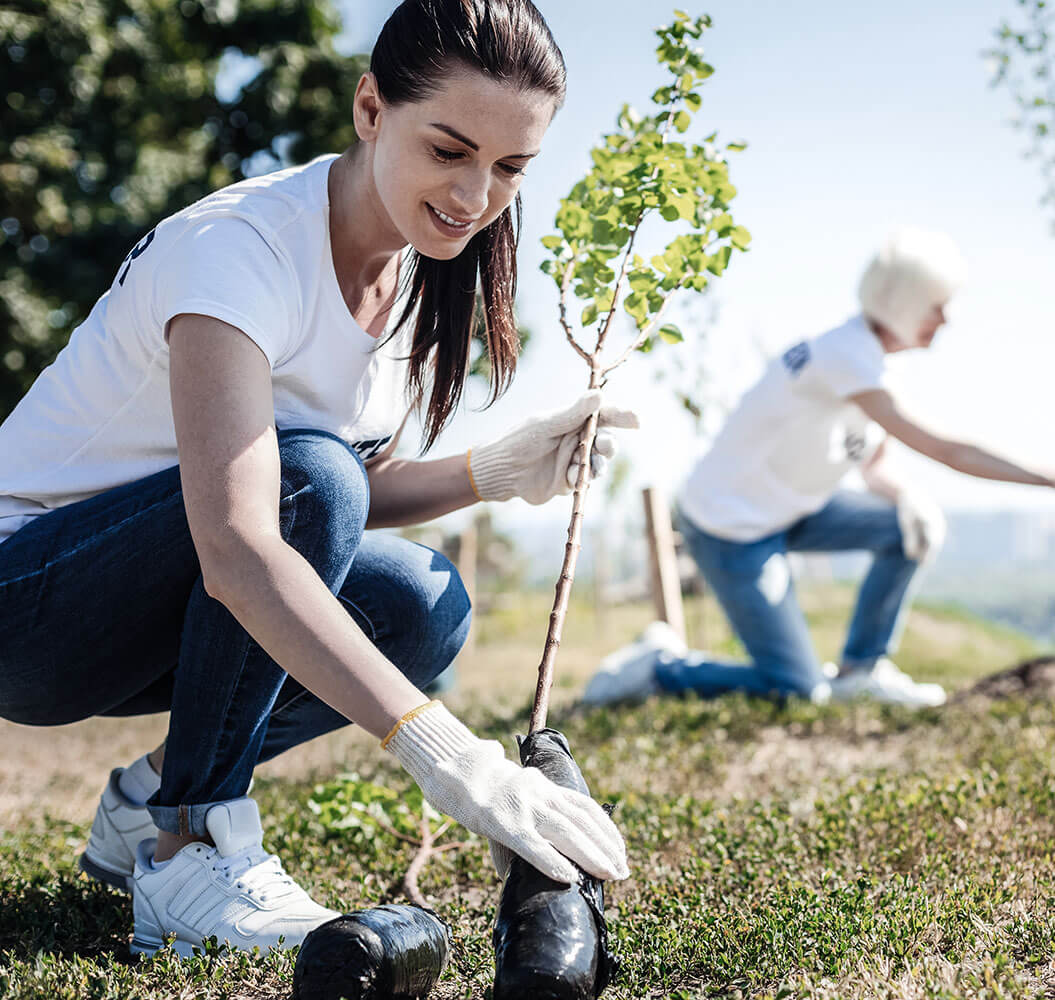Natural Cold Remedies
Recover As Quickly As Possible With These Natural Cold Remedies
There’s nothing worse than getting sick when you’re ready traveling or on vacation. How many days do you miss because you have a fever or cough? If you have kids, catching a cold is almost a given every year during cold and flu season as your child will likely bring something home that they caught from their classmates.
As much as you might want to believe you’ll avoid catching a cold, chances are you will get sick. Now, it’s about creating a plan to deal with your cold so that you can recover as quickly as possible.
Unless you’re suffering from severe side effects from your cold, you should opt for natural cold remedies instead of reaching for medicine. Not only does it save you money, it also helps you build up your natural immunity.
Plus, medicine often masks the cold symptoms, which in turn prevents your body from doing its job in healing. Believe it or not, the cold symptoms you experience is your body’s natural way of dealing with infections. A fever’s hot environment helps kill viruses and also makes germ-killing proteins circulate more quickly around your body.
Coughing helps clear your breathing passages of mucus that carry germs away from your lungs and even stuffy noses serve their purpose in carrying germs out of your body. While suffering from cold symptoms isn’t fun, the best thing you can do is to let your body’s natural defense take over. With that said, there are still some actions you can take to improve your chances of getting over a cold.
Rest as much as you can
Natural Cold Remedies: Rest as much as you can
Sleeping on your new organic mattress and resting is your body’s natural way of fighting off disease. While it might be tempting to power through your cold because you have tight deadlines or mountains of housework to do, it’s important to set those aside and actually give your body time to rest.
Maybe that means reading a book or watching your favorite movie. Essentially, you want to reduce stress as much as possible and spend this time giving your body a break. If you have work, call in sick and take as many days as possible to rest. If you have kids, ask friends and family to help as much as possible. Remember that it’s okay to take a break as it will ultimately help you get back on your feet faster.
In addition to reading or watching movies, make sure to actually sleep if you feel drowsy. Don’t try to fight a nap when you have a cold.
Your body is working hard to fight off the cold so taking a nap is actually a great way to help your body’s natural immune system fight off the virus. If you think you’ll have trouble sleeping later at night, you can take a sleeping aid if you believe it will help you fall asleep.
Hydrate
More than half of adults in the United States don’t drink enough water. Considering 60 percent of the human adult body is water, it’s always important to stay hydrated. Without proper hydration, your bodily functions won’t perform at peak efficiency even when you’re healthy. Don’t forget that while the human body can last 8 to 21 days without food, you can only survive up to 3 days without water.
When you’re sick, it’s even more important to stay hydrated especially if you have a fever. You’ll be losing vital fluids from sweat so you’ll have to replenish your water more often. Not only does water keep your body functioning properly, it can also help flush germs out of your system. In general, you should drink 64 ounces of fluid a day.
Avoid caffeinated and sugary beverages as these tend to act as a diuretic and you’ll end up losing water. With that said, try to drink hot liquids as it can help relieve nasal congestion and soothe inflamed membranes that line your nose and throat.
Aromatherapy
If you’re feeling congested, aromatherapy can help break up the mucus in your sinuses. Simply rub some camphor or menthol salve around your nose.
Just make sure you don’t get any in your nose or you’ll be in for a painful experience! Not only does the salve help open up your breathing passages, it also has mild numbing properties so you can relieve the pain of a nose rubbed raw.
If you don’t want to rub anything under your nose, you can also breathe in aromatherapy oils such as peppermint and eucalyptus to reduce congestion. Even if you’re very congested during the day, you can take a hot shower to open up your sinuses and then breathe in the oils before you head to bed. It’s a great way to clear up your nasal passage just long enough for you to fall asleep. Or, if you’re feeling dizzy from a fever, you can simply run a steamy shower and sit on a nearby chair so that you reap the benefits of the steam.
Eat Light
When you’re sick you probably don’t have much of an appetite, and that’s actually fine. Digestion consumes a lot of energy, which your body needs to fight off the infection. While you should eat something while you’re sick, stick to light meals. Avoid heavy and oily food like chips, burgers, pizzas, etc. Instead, opt for lighter dishes like bone broth and soups.
There’s a reason why chicken soup has been used for centuries as the go-to cold meal. The steam from the soup helps open up your sinuses, and the hot liquid soothes your throat.
If you get tired of drinking your meals, you can eat other food products. Yogurt is a great option as it can help soothe a sore throat and boost your immune system. Similarly, leafy greens and broccoli contain high amounts of vitamin C and E which can help enhance your immune system. Oatmeal is another great option as it provides your body with much needed fiber as well as vitamin E and antioxidants.
Some foods you should avoid include:
Alcohol - it lowers your immune system and causes dehydration
Caffeinated beverages - causes dehydration
Hard/jagged foods - aggravates a cough and sore throat
Processed foods - provides little nutritional value while forcing your body to expend energy on digestion
Massage
Massages are great almost any day, but they are especially effective when you have a cold. You might think that it’s because they help your body relax, and that is part of the reason why it’s a great natural cold remedy.
Massages also help stimulate your body’s lymphatic system. This is your body’s detox system. When you have a cold, your lymphatic system is working overtime to fight off the infection. By getting a massage, you help improve its functionality and help your body release whatever toxins are making you feel like crap.
With that said, you should avoid getting a massage in the early stages. Since a massage helps push toxins into your system, it can actually overstimulate movement of these toxins throughout your body leading to more severe side effects.
Plus, you will likely be highly contagious in the beginning, which could put your massage therapist at risk of contracting your cold. If anything, schedule a massage when you start feeling better to protect yourself and your massage therapist.
Vitamin C
There are a ton of products packed with vitamin C that claim to prevent cold symptoms. Unfortunately, this has not been proven. With that said, there are some studies that indicate vitamin C can shorten the lifespan of a cold. More importantly, getting a consistent amount of vitamin C has been shown to boost your overall health, including your immune system.
You should aim to get vitamin C directly from your diet instead of taking supplements so your body is able to absorb it better. The fresher the food, the better. So instead of getting your daily dose of vitamin C from orange juice, eat an actual orange instead. Other foods that are high in vitamin C include:
Chili peppers
Guavas
Yellow peppers
Spinach
Kale
Kiwis
Broccoli
Brussel sprouts
Lemons
Lychees
Strawberries
Tomatoes
Honey and Tea
Natural Cold Remedies: Honey and Tea
When it comes to the top natural cold remedy, honey and hot tea should always make the list. While you should know by now that hot beverages are great for soothing your inflamed throat and sinus, honey isn’t your standard sweetener. Honey has natural antiviral and antimicrobial properties making it one of nature’s best cold fighters.
The use of honey as a home remedy for soothing sore throats and calming coughs has been a tradition for centuries. It’s particularly well-known as a respiratory infection in treatment in Ayurveda, a healing tradition of India’s Vedic culture.
When tested among 130 children, honey performed better than dextromethorphan and the placebo for reducing cough frequency and severity. Since then, other research has shown similar results with honey showing that even among adults it helped reduce the frequency of coughing. Both the honey’s antimicrobial properties as well as its viscous texture seems to be the reason why it often outperforms over-the-counter medicine.
If you want to take your tea a step further, mix it with some ginger to further soothe your cold symptoms. Some studies have found that ginger can help reduce congestion and inflammation as it has antibacterial and antiviral properties. Make sure to use the fresh stuff though as dried ginger did not have any effect.
Elevate Your Head When You Sleep
Nasal congestion is never fun, but it always seems to hit the hardest just as you are about to go to bed. That’s because when you lay your head down, the congestion remains in your sinuses and cannot drain. Simply adding another pillow under your head can help relieve congested nasal passages. If you’re not used to sleeping at a higher angle, you can try placing the extra pillow between the mattress and the box spring for a more gradual slope.
Even if you don’t have a cold, elevating your head during sleep can help reduce snoring and problems associated with sleep apnea. If positioned properly, it can also relieve pain. With that said, it is much harder to change positions during sleep and can completely remove any benefits of sleeping on your left or right side.
Boost Your Immune System With These Natural Cold Remedies
The common cold might cause annoying symptoms, but you can easily manage these through natural cold remedies instead of over-the-counter medicine. In general, you can shorten the lifespan of a cold by getting enough sleep, drinking enough liquids, and eating the right food. While the worst of the symptoms might be gone after five days, it can take up to two weeks to fully recover.
If you happen to have a secondary infection, your recovery might take even longer! While it might be annoying, it’s important that you take it slow and take care of yourself even when you start feeling better. Remember, your body isn’t fully recovered so you’ll be more prone to catching another cold while you’re still healing.
While your natural immune system should be able to fight off most infections, there might be times where you should see a doctor. If your symptoms aren’t getting better after a week or two, start to feel worse, or you develop serious symptoms (persistent high fever, shortness of breath, extreme weakness), go see a doctor. While there’s no cure for the common cold, you can and should get antibiotics for things like Strep or Pneumonia.
Karen A Mulvey is a personal social blogger and mom with 14 years of experience in the every day world of motherhood and sustainable product research. Karen is on a mission to help everyday families select sustainable, non-toxic organic products, stop stressing about uncertainties on sustainable home goods and apparel, and start living the life they’ve always wanted.
Follow Karen at @karenAmulveycs | Karen A Mulvey
















